 |
Convert AC3 to FLAC
|
Total Audio MP3 Converter converts AC3 to FLAC
easily and quickly. The software supports more than 90 audio and video formats
as input, and converts to popular audio formats such as AAC, AIFF, M4A, M4B, MP3,
OGG, WAV, WMA, and so on.
Total Audio MP3 Converter supports batch conversion,
and is full compatible with Vista and Windows 7 (both 32-bit and 64-bit editions).
- Free Download Total Audio MP3 Converter
- Install the Software by Step-by-step Instructions
- Launch Total Audio MP3 Converter
- Choose AC3 Files
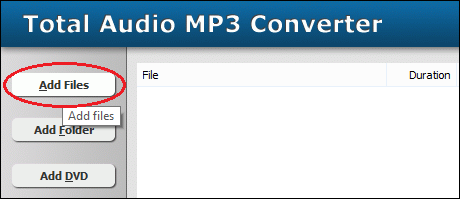
Click "Add Files" button to choose AC3 files and add
them to conversion list.
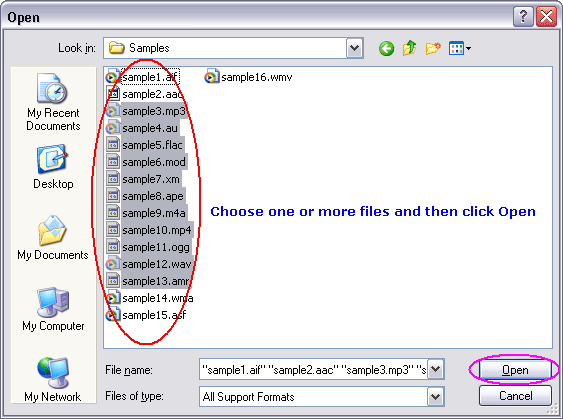
Choose one or more AC3 files you want to convert and then click Open.
Total Audio MP3 Converter will open the files, and then read file information such as
duration, bit rate, sample, and channels, and show them on the program.
- Choose Target File Format
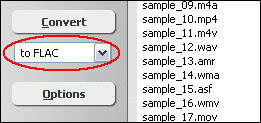
Choose "to FLAC"
- Convert AC3 to FLAC
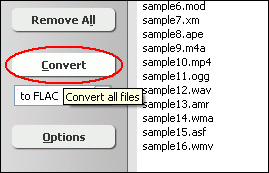
Click "Convert" to convert AC3 files to FLAC.
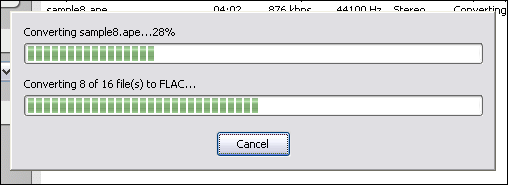
The software is converting AC3 files to FLAC.
- Play & Browse
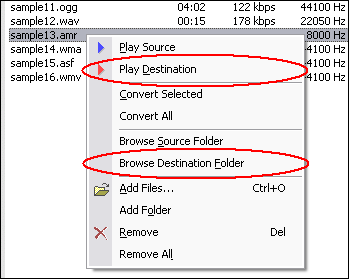
Right-click converted item and choose "Play Destination" to play
the destination file, choose "Browse Destination Folder" to open
Windows Explorer to browse the destination file.
- Done
Top
What is AC3?
Dolby Digital, or AC-3, is the common version containing up to six discrete channels
of sound. The most elaborate mode in common usage involves five channels for normal-range
speakers (20 Hz - 20,000 Hz) (right front, center, left front, right rear and
left rear) and one channel (20 Hz - 120 Hz) for the subwoofer driven low-frequency
effects. Mono and stereo modes are also supported. AC-3 supports audio sample-rates
up to 48kHz. Batman Returns was the first film to use Dolby Digital technology
when it premiered in theaters in Summer 1992. The LaserDisc version of Clear and
Present Danger featured the first Home theater Dolby Digital mix in 1995.
What is FLAC?
Free Lossless Audio Codec (FLAC) is a file format for lossless audio data compression.
Being lossless, FLAC does not remove information from the audio stream, as lossy
compression formats such as MP3, AAC, and Vorbis do. FLAC's primary author is
Josh Coalson. FLAC reduces bandwidth and storage requirements without sacrificing
the integrity of the audio source. A digital audio recording (such as a CD track)
encoded to FLAC can be decompressed into an identical copy of the audio data.
Audio sources encoded to FLAC are typically reduced in size 40 to 50 percent (46%
according to their own comparison). FLAC is suitable for everyday audio playback
and archival, with support for tagging, cover art and fast seeking. FLAC's free
and open source royalty-free nature makes it well-supported by many software applications,
but FLAC playback support in portable audio devices and dedicated audio systems
is limited at this time.
Convert AC3 to FLAC Related Topics:
|






